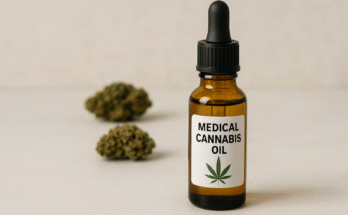A clinical trial studying the benefits of ketamine in treating alcohol addiction has progressed to the next stage, offering new hope to those struggling with alcohol dependency.
The trial, which is being led by the University of Exeter, has shown promising results in its initial phase, directing researchers to move forward with further testing.
The £2.4milion Phase 3 trial will continue to take place at seven NHS sites across the UK.
Titled The Ketamine for Reduction of Alcohol Relapse (KARE), the trial will now move to the next phase of drug development, with the aim of rolling it out into the NHS if it proves effective.
If the proceeding results of the next phase are positive, it could lead to the expansion of new and potentially more effective treatment options for those struggling with alcohol dependency.
Read: How To Access Ketamine-Assisted Therapy In The UK
Study details
The trial will recruit 280 people who suffer from alcohol dependence problems and will be split into two groups at random.
Half of the group will be given a very low dose of ketamine alongside a seven-session education program on the detrimental effects of alcohol.

The other half will be given the dose used in the first clinical trial in conjunction with psychological therapy.
Researchers will study whether the combination of ketamine and therapy decreases alcohol dependency.
Novel treatment
Ketamine is a medication commonly used for pain management and an anaesthetic which has shown potential in treating a variety of mental health conditions, including depression and addiction.
The current clinical trial is evaluating the effectiveness of ketamine in helping individuals overcome their alcohol addiction which is a significant public health issue, affecting millions of people in the UK and worldwide.
Read: Ketamine Clinic To Open In London
Traditional treatments, such as counselling and other medications, have shown limited efficacy in helping individuals overcome their alcoholism.
As a result, Professor Celia Morgan, an academic of the study, said there was an “urgent need” for new and innovative approaches to treating this condition.

The results of the first two phases of the trial have been extremely encouraging, with participants reporting significant reductions in their alcohol intake and an overall improvement in mental health outcomes.
These findings suggest that ketamine may be a feasible option for treating alcohol addiction, and the next phase of the trial will look to investigate the longer-term effects of the medication.
Read: Mushrooms, Ketamine And Weed Are The Safest Recreational Drugs
Sign up to our newsletter below for more UK cannabis news, reviews, guides and insider tips…




